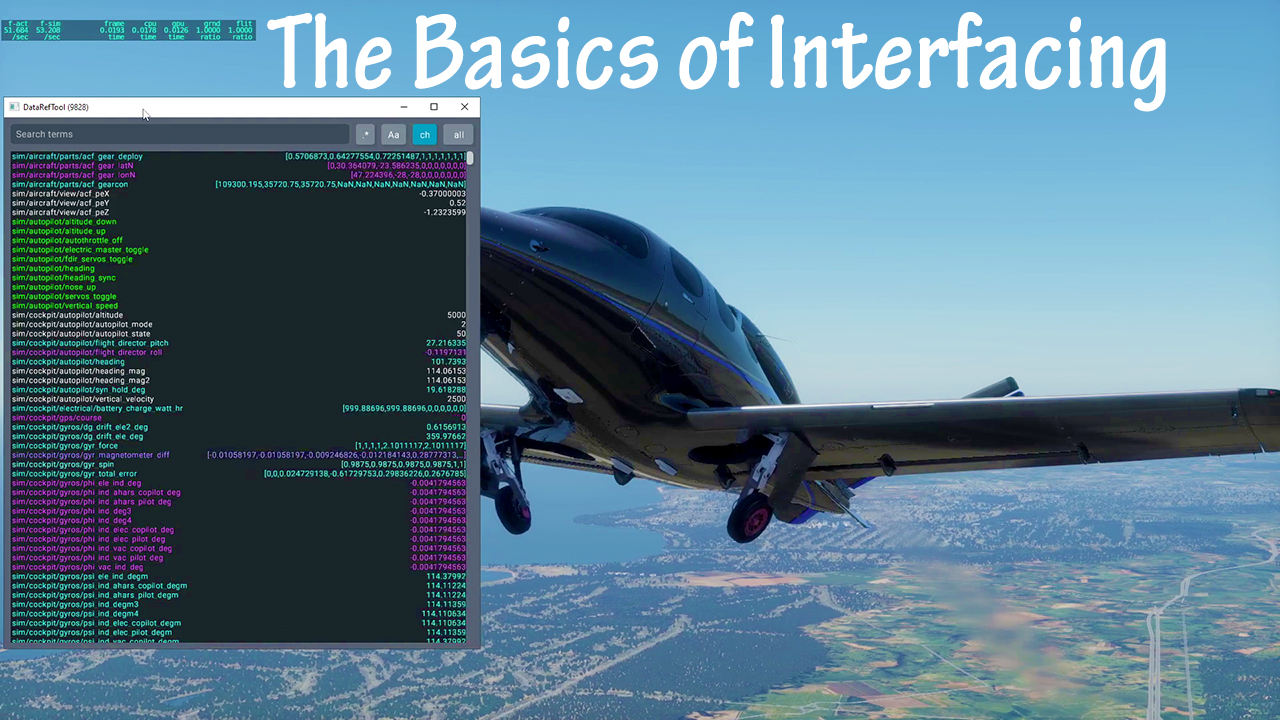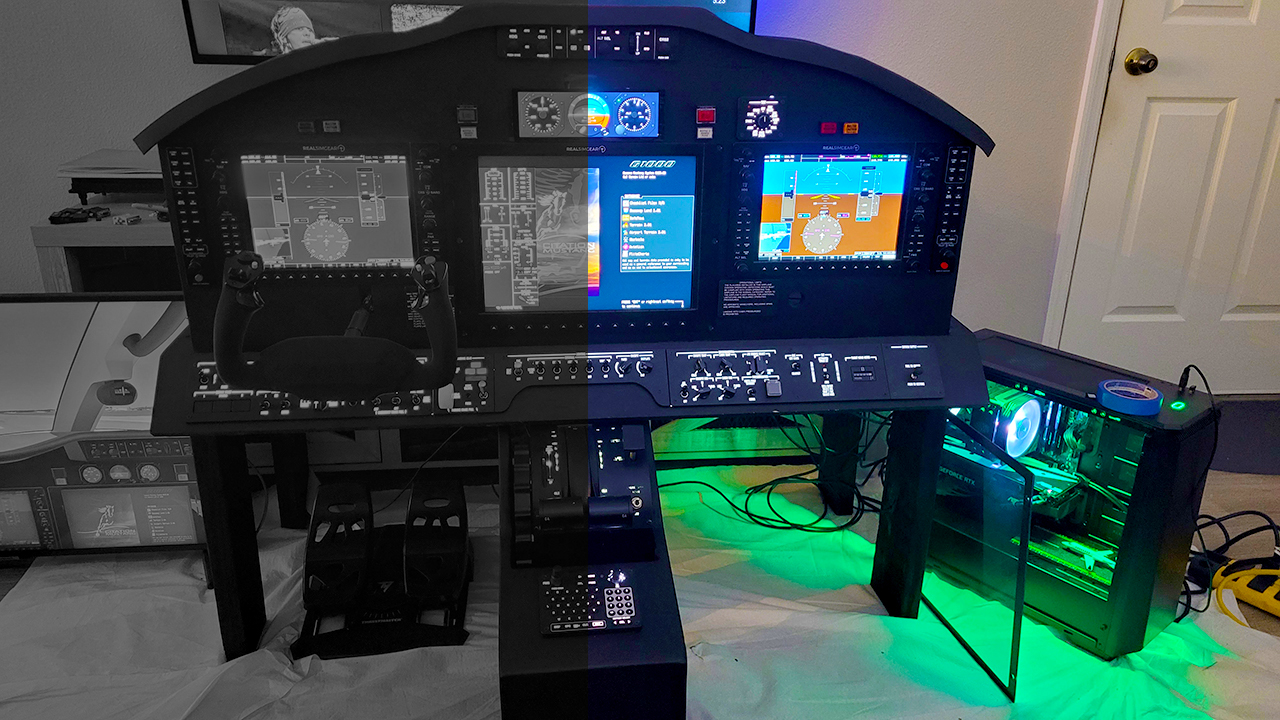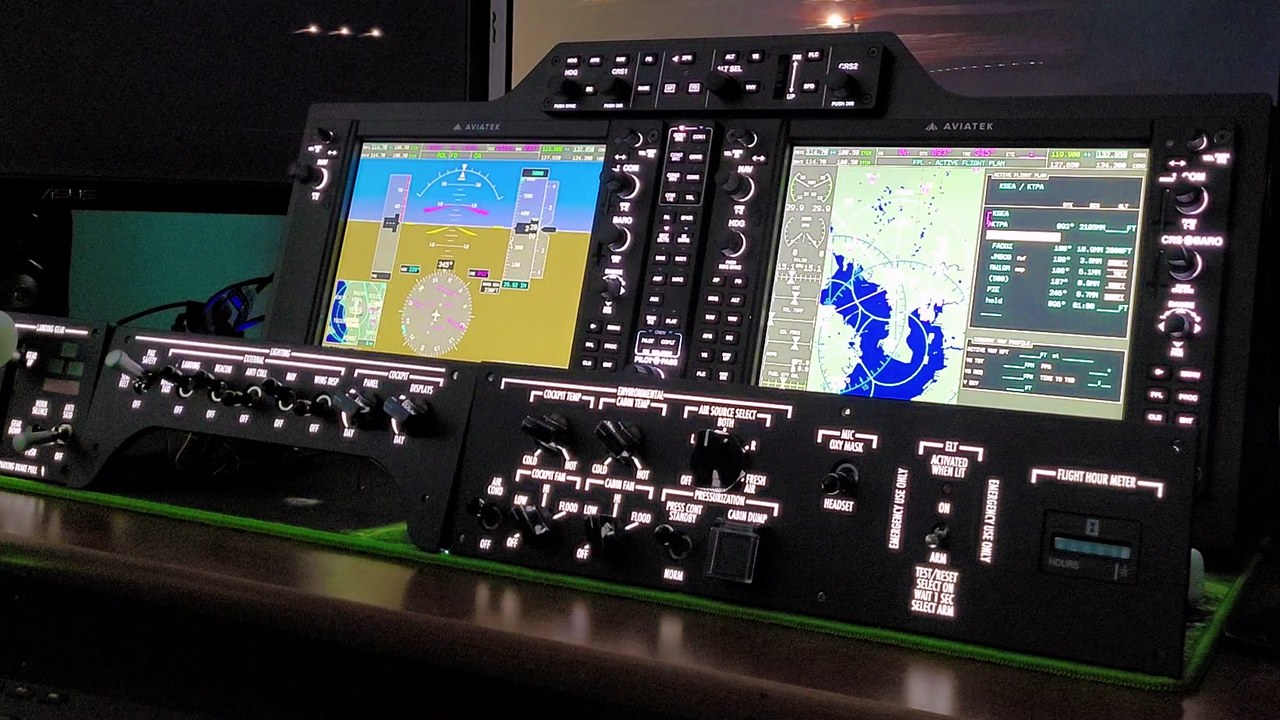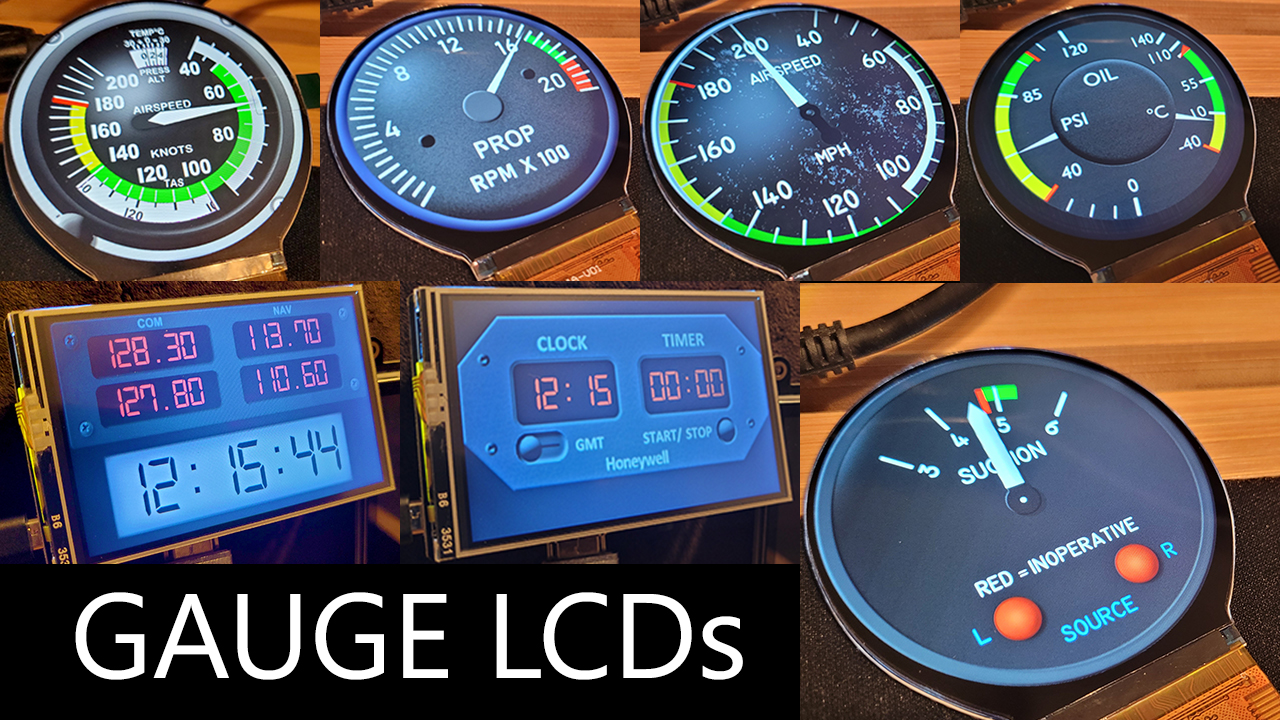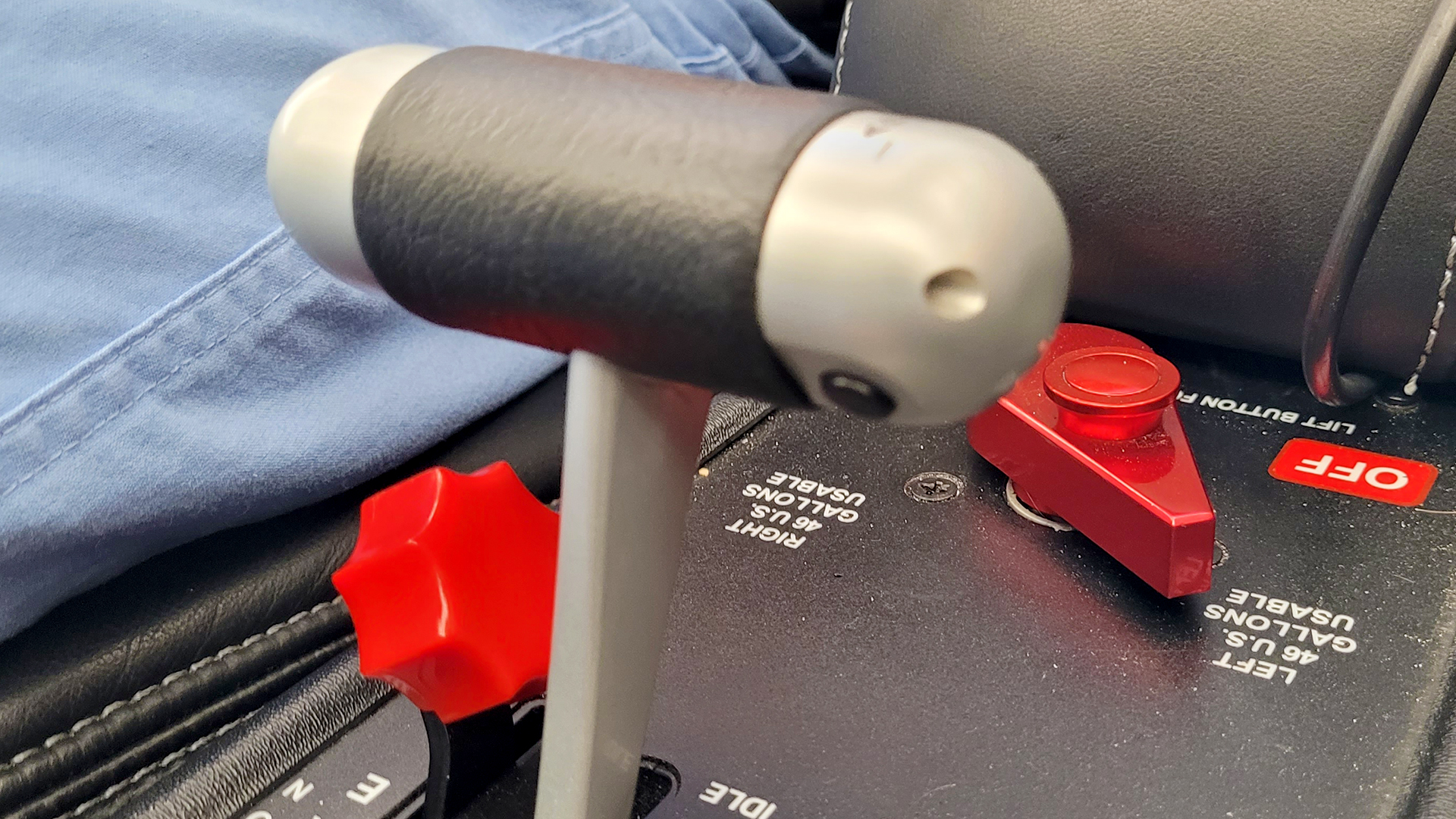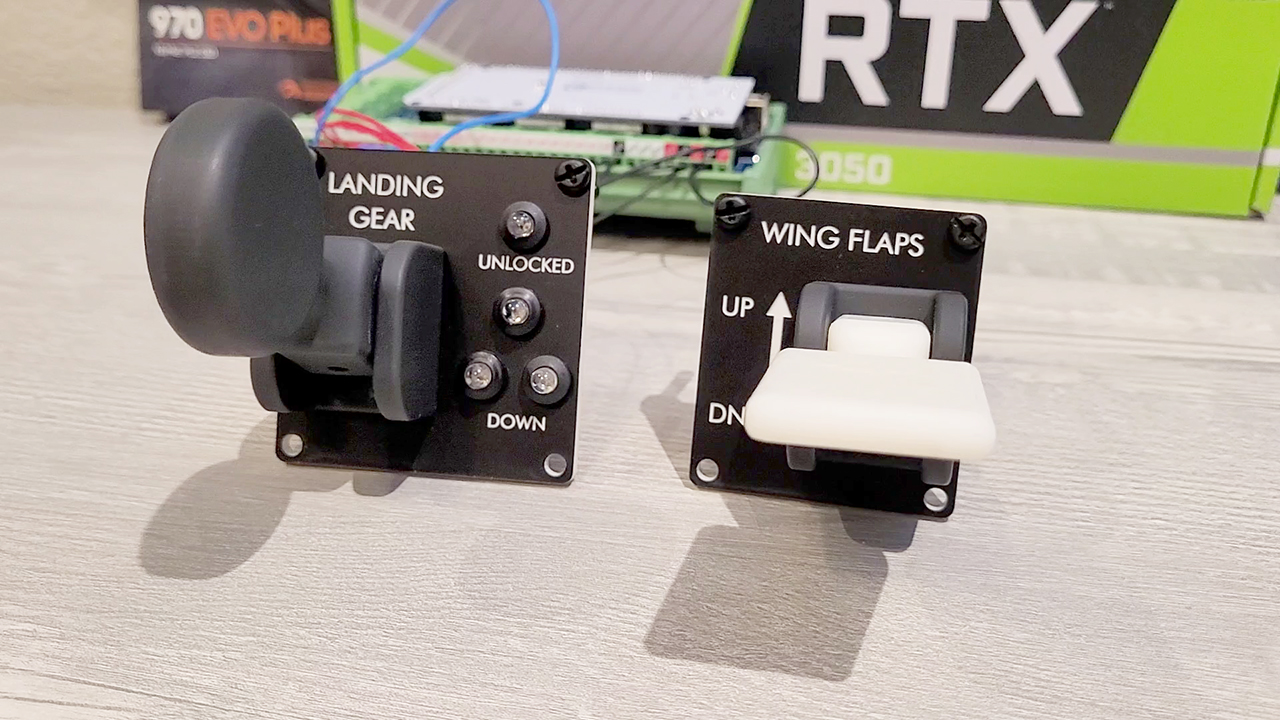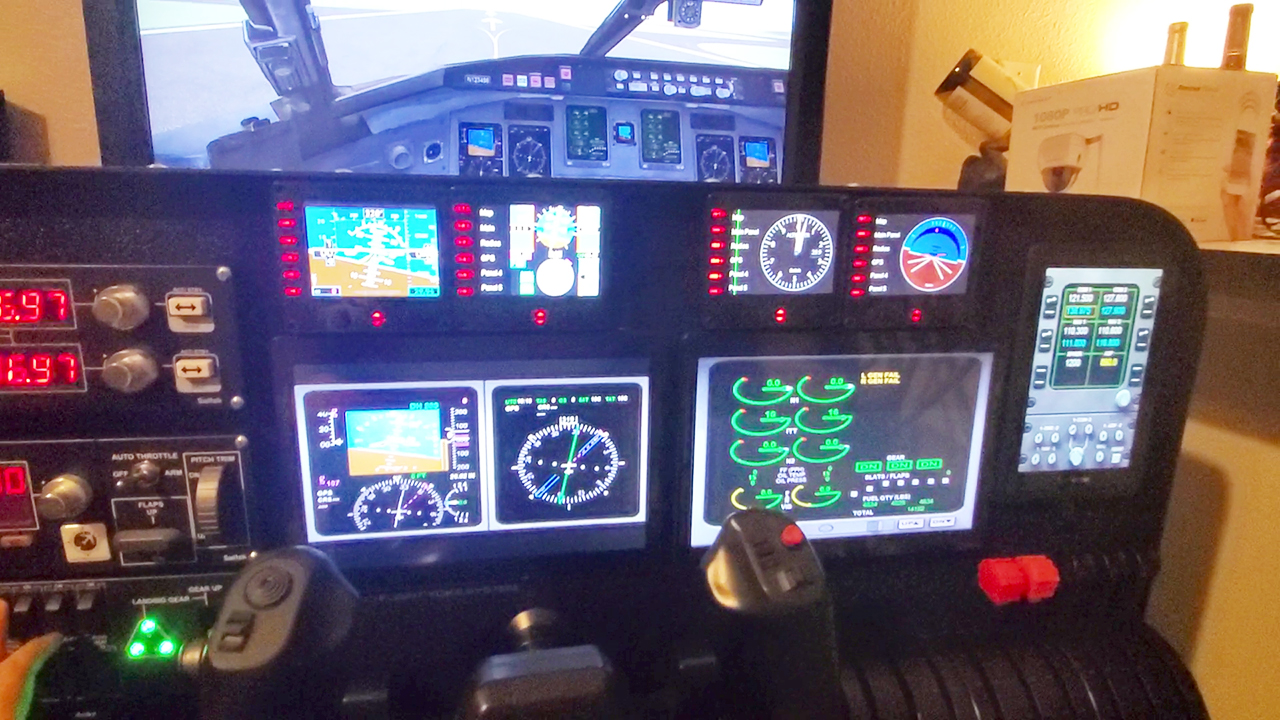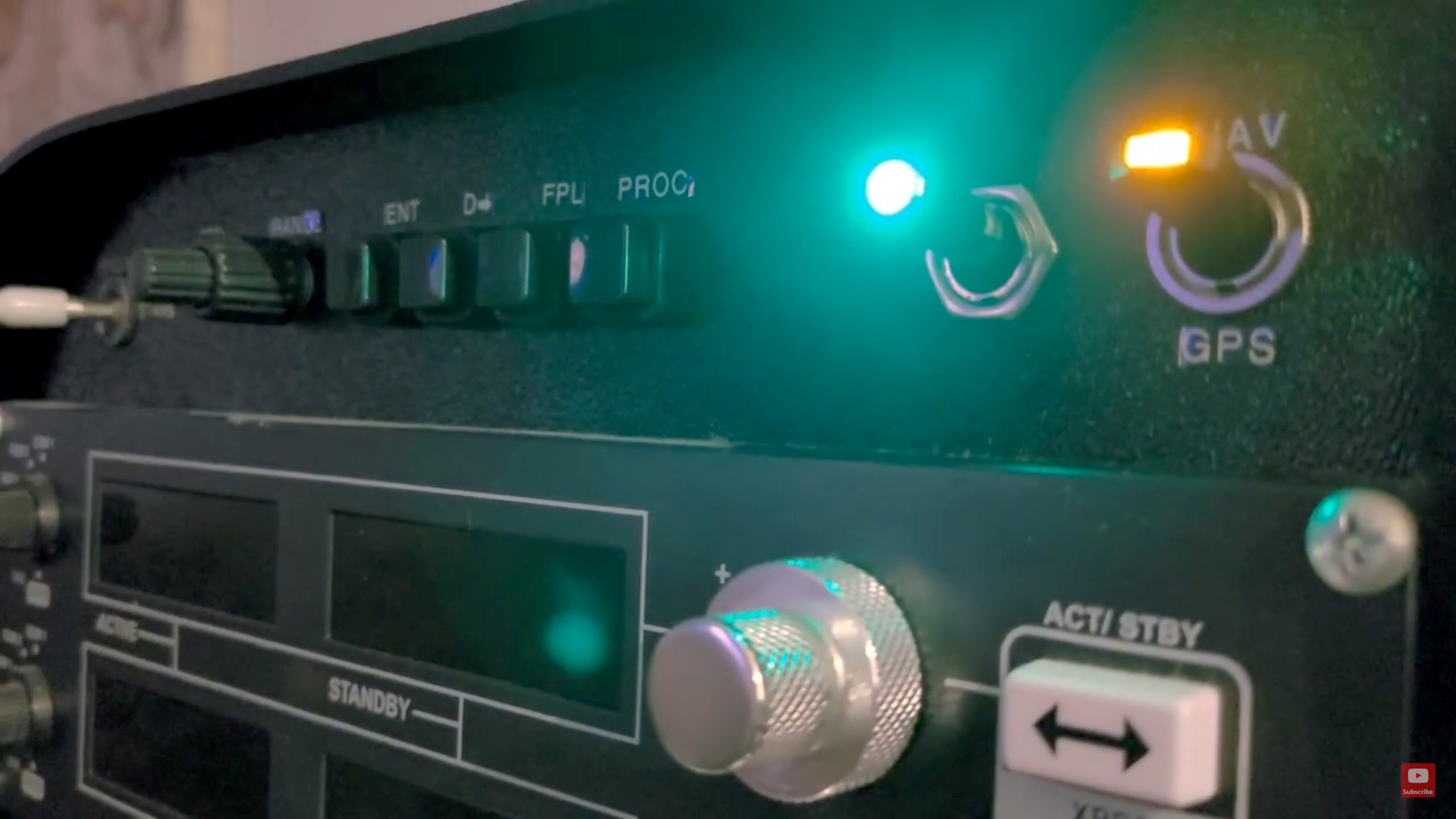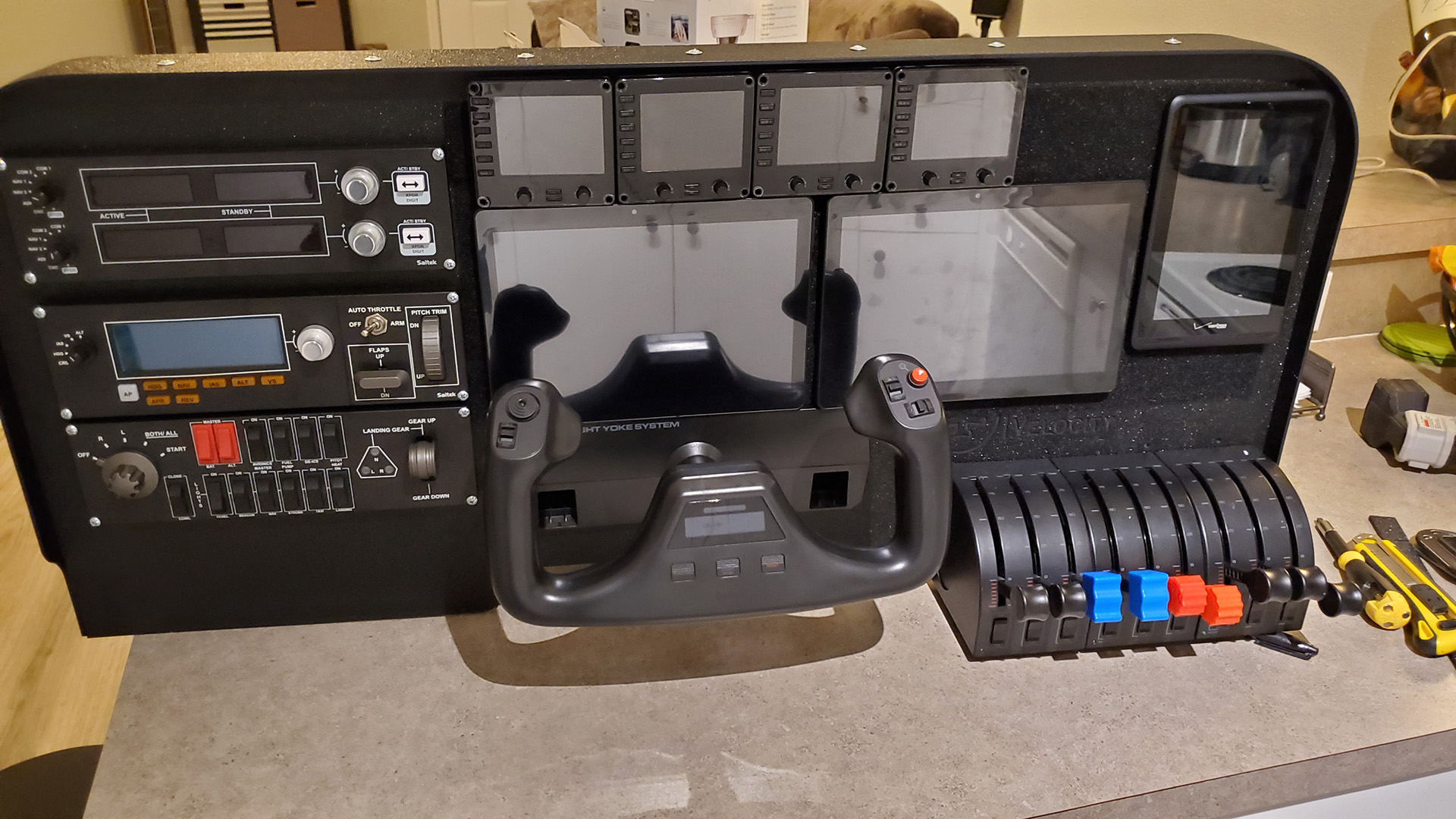flight simulator
The Basics of Flight Simulation Interfacing
Interfacing elevates you to the next Level in Home Cockpit Building and DYI Flight Simulators. It allows you to create two-way interactions between your devices (joysticks, flight sim panels) and the Simulator. Instead of just providing inputs, the simulator can now provide outputs, modifying properties of your devices, such as turning on an LED or […]
Read moreHow a Flight Simulator / Home Cockpit comes to Life
Building a high quality Flight Simulator, Home Cockpit or Desktop Trainer with high fidelity is a challenging experience. The following video gives you a quick glance into all of the steps taken, from start to finish, in order to build a DIY Cockpit that resembles the real aircraft, and can be used to train pilots, […]
Read moreUsing Dimmers in Home Cockpits with Backlit Panels
Having Flight Simulators and Home Cockpits with Back Lighting is definitely a game changer. Back Lighting adds another level of comfort, and it makes it easier to locate specific labels or instruments. However, sometimes the lights may be too bright, or too dim, and need to be either increased or decreased. This is where a […]
Read moreRound and Small Gauge LCDs for Cockpit Building
When working on your Flight Simulator, if building something similar to a real airplane, you will notice that not all of the instruments are side by side or even close by. If using one large monitor to load your instrument or gauge cluster this is perfect, but sometimes we have to split the instruments between […]
Read moreFlight Simulator Hardware Add-Ons – ProDeskSim Honeycomb Alpha
In this video we review several products by ProDeskSim, which create a variety of add-on products for Simulator Hardware manufacturers such as Logitech, Honeycomb and Turtle Beach. Part of the review is actually performed on a real Airplane and tackles accuracy, functionality, and features such as fully functional TO/GA buttons. The Add-Ons which include throttle, […]
Read moreDIY Cockpit Panels Landing Gear and Flaps Review
Supporting independent Flight Simulator hardware manufacturers is a passion of mine. DIY Cockpit Panels has created Landing Gear and Flaps Lever panels that are worth taking a look at. In the video review below, you can see all of their features. They include everything you need to completely simulate their functions in the simulator, for […]
Read moreTouch Sensors for Flight Simulator, prepar3d and X-Plane
This video demonstrates how Touch Sensors can also be used to create a fun and different way to perform actions in the simulator just as you would by using a Push Button or Toggle Switch. The TTP223 Touch Sensor Module offers several configurations and the option to add LEDs, which can be used as status […]
Read moreConvert SPST Switches and Pushbuttons to SPDT
This video shows you a very neat trick: How to convert Single Pole Single Throw Switches and Pushbuttons to Single Pole Double Throw configuration, adding more inputs and flexibility to your Simulator or Cockpit. SPST switches can only send one action to the Simulator, while SPDT can send two, which is usually needed to modify […]
Read moreHow to Add LED Switches and Pushbuttons to your Simulator / Cockpit
Adding LED Switches and LED Pushbuttons can be a cool addition to a simulator or cockpit. They can also help with identification, or helping us determine what is on or off in dark environments. Most of the USB Interface Cards we use with Cockpit Setups, such as the Leo Bodnar cards, simple USB PC Interface […]
Read moreBuilding a Cockpit for Avionics Training
Knowing your Avionics is a big part of enjoying your Flight Simulator. I built a simple Home Cockpit, compatible with prepar3d, X-Plane, Flight Simulator, and Flight Simulator X, in which I could load many different types of Avionics and Gauges for familiarization. The first step was to obtain the Cockpit Panel. Since this was a […]
Read more
